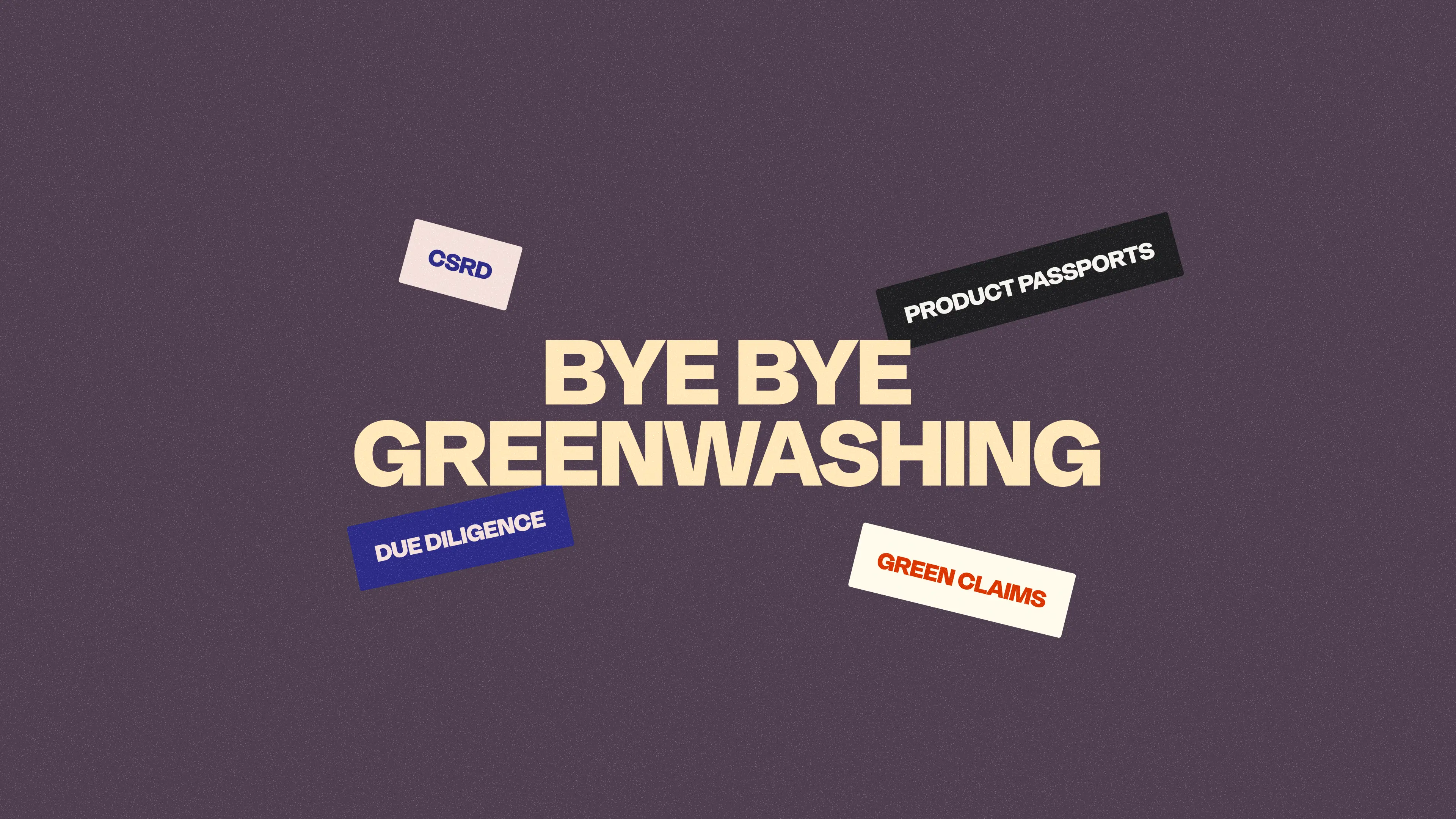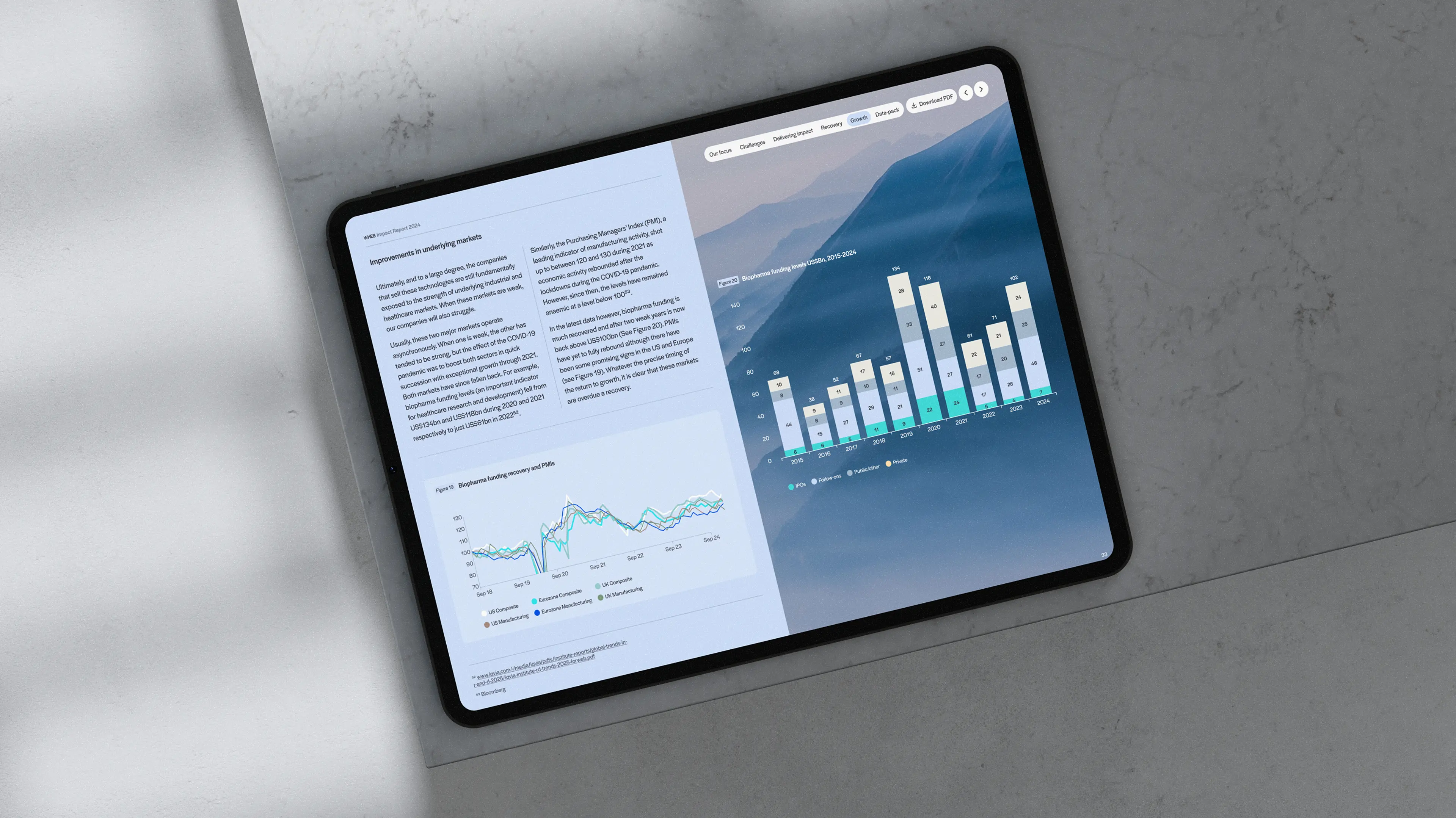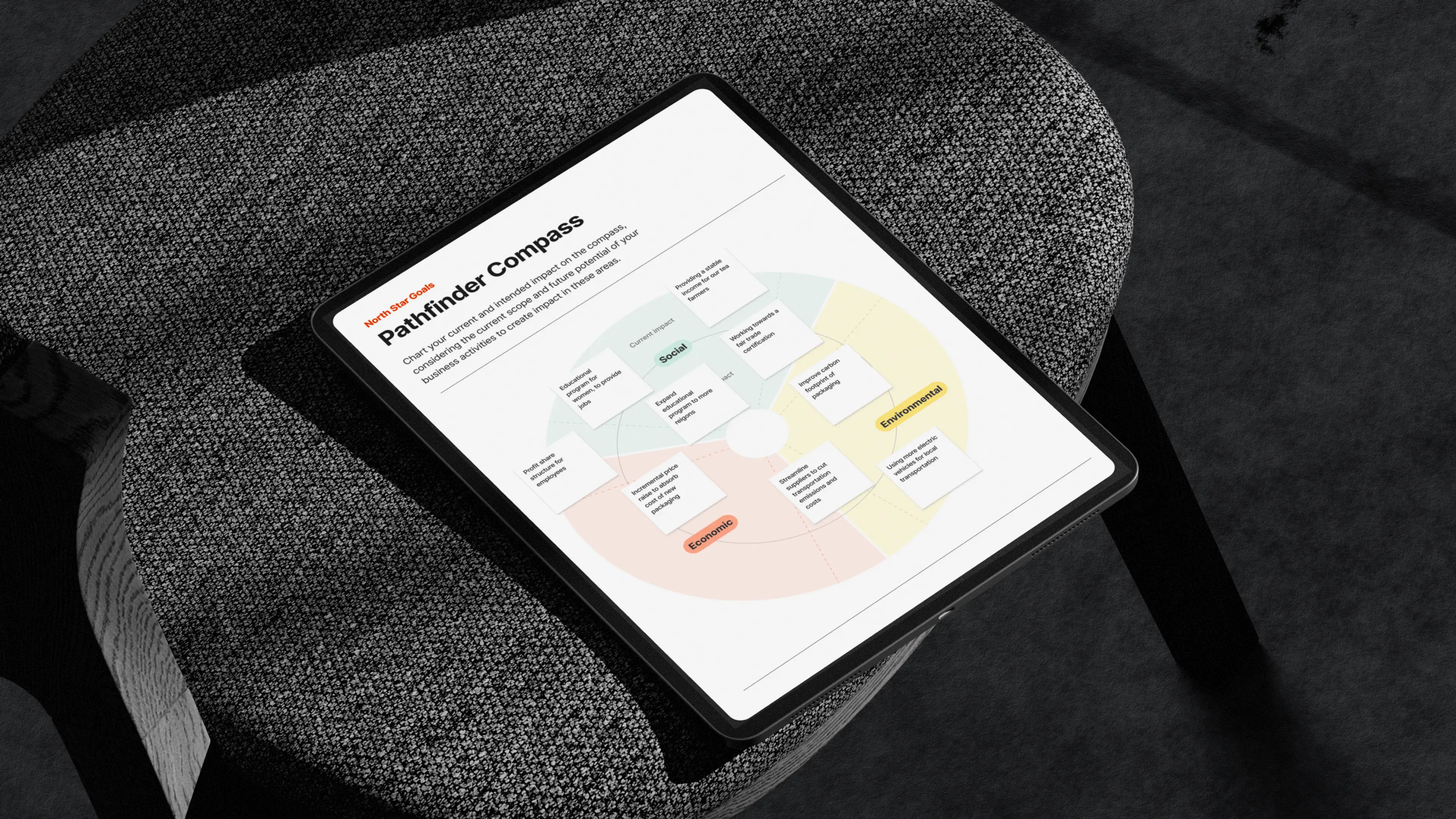As consumer skepticism peaks, new regulations are transforming how businesses communicate their sustainability efforts.


Olivia Dias Bagott
Strategist
We’re increasingly bombarded with claims from brands offering goods and services that are ‘green’ or ‘carbon neutral’, yet the majority lack clear evidence to back up these statements.
Research from the EU (opens a new window) points out that “53% of green claims give vague, misleading or unfounded information”. Unsurprisingly, over 70% of people surveyed by YouGov (opens a new window) were skeptical about green claims from brands. This data suggests that we’ve reached a point where the language around sustainability is losing its meaning, due to years of unfettered greenwashing from corporations. This issue positions truly circular and regenerative businesses at a disadvantage, as their value offering competes with misleading messaging.
The term Greenwashing gained popularity in the late 80s, when unrestricted advertising allowed companies to portray themselves as environmentally responsible whilst continuing unsustainable practices. Whilst consumer awareness and skepticism has grown, it’s only recently that we’ve seen legal regulation come into play in the UK and the EU. 2024 and 2025 were landmark years, marked by a series of pivotal ESG (environmental, social, governance) regulations reshaping corporate responsibility, and 2026 is set to see continued scrutiny and several new regulations come into effect.

Implications for your business
While there are several nuances between UK and EU regulation affecting business of different sizes, when it comes to brand communication the new laws and regulations are likely to have the following implications:
Data will be scrutinised, so get serious about reporting
It’s not enough to offset your carbon and claim net-neutrality anymore. Businesses operating in the EU will be expected to provide detailed, audit-ready data to back up sustainability claims by the end of 2025. Whilst the latest iteration (opens a new window) of the Corporate Sustainability Reporting Directive (CSRD) applies to businesses with more than 1000 employees, they’re likely to set a precedent for reporting standards. Keeping tabs on energy use and getting serious about supply chain transparency will become the norm. Publishing an impact report at the end of the year is a good way to keep accountable and share progress with your customers or clients.
E.g: A SaaS company claiming ‘carbon-neutral hosting’ must prove its data centers use 24/7 renewable energy, not just annual offsets, to comply with EU standards.
Certifications will no longer be a surefire value-add
Much attention has been given to labels and certifications that signal ‘green’ or ‘ethical’ status. In 2020 there were around 300 ‘eco labels’ in Europe. These awarding bodies are going to be further scrutinised, thanks to the EU Empowering Consumers Directive (opens a new window), so it’s valuable to get ahead of the game. Start looking into third-party claims to gauge which are authentic and doing the work to align with upcoming legislation.
E.g: A fashion retailer using a ‘sustainable cotton’ certification must verify its alignment with the EU Deforestation Regulation’s due diligence requirements.
Impact should be integrated, not just communicated
All brands need to rethink their impact, and how this aligns with their long-term planning, supply chains and marketing strategies. Rather than thinking of sustainability as an add-on, if you want to connect with ethical consumers, start aligning impact goals with your quarterly KPIs.
E.g: Spot opportunities for innovation through impact by creating subtle shifts in your current business model. Try our Impact Pathfinder Checklist for a supportive framework to get started.

Greenwashing laws and guidelines in the UK and EU
The Green Claims Code (UK)
The UK Green Claims Code (opens a new window) was launched in the UK in 2022, and whilst it is not a law, it’s designed to help businesses comply with existing consumer protection laws when making environmental claims. This has supported the UK Advertising Standards Authority (ASA) to remove misleading advertising (opens a new window) from oil behemoths Shell and Petronas, as well as banning an HSBC poster (opens a new window)advertising the bank’s investment in renewables.
The Green Claims Code is currently focused on educating consumers to spot misleading claims and businesses to back up their statements with evidence. Businesses can be fined up to 10% of their yearly turnover by the ASA if they are seen to seriously breach consumer protection laws.
Empowering Consumers for the Green Transition Directive & Green Claims Directive
The EU Green Claims Directive (opens a new window) combats greenwashing by mandating businesses to support their environmental claims with clear and verifiable evidence. Similar to the UK's Green Claims Code, it promotes transparency in environmental messaging. The directive introduces specific requirements that businesses must be prepared for if they intend to operate in the EU market. Such as making sure all data and claims are reliable, comparable and verifiable, as well as making sure any green claims go beyond what is required by law.
Conversely, this directive presents opportunities: Whilst large corporations will be held to account, it will take a long time to update their business models to align with new regulation. Smaller, more agile companies can pivot their activities towards planet-friendly practices rapidly, and earn consumer trust. The directive is still in the legislative process, with adoption to take effect mid 2026, brands should start early to prepare for compliance.
Corporate Sustainability Reporting Directive (CSRD)
Reporting requirements for large companies and listed SMEs will fully apply in 2026 for those newly captured by the CSRD. These rigorous ESG disclosure standards influence expectations along supply chains, meaning even smaller businesses should expect increased requests for sustainability data and more scrutiny over their practices, particularly if they’re supplying products or services to the EU.
In the UK, while the government is aligning with the International Sustainability Standards Board (ISSB) through its own reporting frameworks, companies with significant EU operations or subsidiaries will need to prepare for both UK and EU standards. The overall effect is a higher bar for transparency and accountability, with CSRD-driven demands shaping sustainability expectations for all businesses with a connection to the EU market in 2026 and beyond.

The future of ESG business communications
New regulations signal a transformative shift in how businesses communicate their environmental commitments. Paired with wider directives like the EU Corporate Sustainability Due Diligence Directive (opens a new window) (CSDDD) and Product Passports (opens a new window), companies will need to adapt by integrating sustainability into their core operations and supply chains. Larger corporations face significant compliance costs, smaller businesses with agile models can capitalise on these changes by innovating- in their sustainability efforts.
Ultimately, this regulatory landscape presents a chance for forward-thinking businesses to redefine themselves as leaders in regenerative and circular business models. As legislation demands increased transparency, those who effectively communicate their environmental initiatives can build authentic credibility and create differentiation in crowded markets.

Need support with an upcoming impact report?
We transform complex data into engaging visual narratives that build credibility and invite new audiences to engage with your impact stories.



